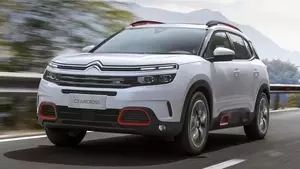
| Vehicle | Precise engine size | Difference from world average | Engine size to consumption ratio | Horsepower from 1 L | Engine size to 100 kg of weight |
|---|---|---|---|---|---|
| 1.6 350THP |
1.6 L (1598 cc) |
31.9% smaller | 46 cc to 1 mpg | 104 hp from 1 L | 107 cc to 100 kg |
| 1.8 380THP |
1.75 L (1751 cc) |
25.4% smaller | 52 cc to 1 mpg | 117 hp from 1 L | 117 cc to 100 kg |
| 1.2 PureTech |
1.2 L (1199 cc) |
48.9% smaller | - | 109 hp from 1 L | 86 cc to 100 kg |
| 1.6 PureTech |
1.6 L (1598 cc) |
31.9% smaller | - | 113 hp from 1 L | 114 cc to 100 kg |
| 1.5 BlueHDi |
1.5 L (1499 cc) |
36.1% smaller | 25 cc to 1 mpg | 87 hp from 1 L | 107 cc to 100 kg |
| 2.0 BlueHDi |
2 L (1997 cc) |
14.9% smaller | 40 cc to 1 mpg | 89 hp from 1 L | 133 cc to 100 kg |
| Hybrid 225 |
1.6 L (1598 cc) |
31.9% smaller | 12 cc to 1 mpg | 113 hp from 1 L | 89 cc to 100 kg |
| Vehicle | 1.6 350THP |
|---|---|
| Precise engine size | 1.6 L (1598 cc) |
| Difference from world average | 31.9 smaller |
| Engine size to consumption ratio | 46 cc to 1 mpg |
| Horsepower from 1 L | 104 hp from 1 L |
| Engine size to 100 kg of weight | 107 cc to 100 kg |
| Vehicle | 1.8 380THP |
| Precise engine size | 1.75 L (1751 cc) |
| Difference from world average | 25.4 smaller |
| Engine size to consumption ratio | 52 cc to 1 mpg |
| Horsepower from 1 L | 117 hp from 1 L |
| Engine size to 100 kg of weight | 117 cc to 100 kg |
| Vehicle | 1.2 PureTech |
| Precise engine size | 1.2 L (1199 cc) |
| Difference from world average | 48.9 smaller |
| Engine size to consumption ratio | - |
| Horsepower from 1 L | 109 hp from 1 L |
| Engine size to 100 kg of weight | 86 cc to 100 kg |
| Vehicle | 1.6 PureTech |
| Precise engine size | 1.6 L (1598 cc) |
| Difference from world average | 31.9 smaller |
| Engine size to consumption ratio | - |
| Horsepower from 1 L | 113 hp from 1 L |
| Engine size to 100 kg of weight | 114 cc to 100 kg |
| Vehicle | 1.5 BlueHDi |
| Precise engine size | 1.5 L (1499 cc) |
| Difference from world average | 36.1 smaller |
| Engine size to consumption ratio | 25 cc to 1 mpg |
| Horsepower from 1 L | 87 hp from 1 L |
| Engine size to 100 kg of weight | 107 cc to 100 kg |
| Vehicle | 2.0 BlueHDi |
| Precise engine size | 2 L (1997 cc) |
| Difference from world average | 14.9 smaller |
| Engine size to consumption ratio | 40 cc to 1 mpg |
| Horsepower from 1 L | 89 hp from 1 L |
| Engine size to 100 kg of weight | 133 cc to 100 kg |
| Vehicle | Hybrid 225 |
| Precise engine size | 1.6 L (1598 cc) |
| Difference from world average | 31.9 smaller |
| Engine size to consumption ratio | 12 cc to 1 mpg |
| Horsepower from 1 L | 113 hp from 1 L |
| Engine size to 100 kg of weight | 89 cc to 100 kg |
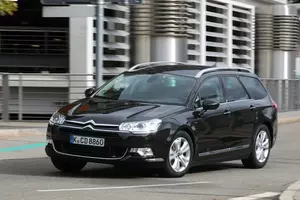
| Vehicle | Precise engine size | Difference from world average | Engine size to consumption ratio | Horsepower from 1 L | Engine size to 100 kg of weight |
|---|---|---|---|---|---|
| 1.6 THP |
1.6 L (1598 cc) |
31.9% smaller | 46 cc to 1 mpg | 98 hp from 1 L | 107 cc to 100 kg |
| 2.0 HDi |
2 L (1997 cc) |
14.9% smaller | 43 cc to 1 mpg | 82 hp from 1 L | 125 cc to 100 kg |
| 1.6 VTi |
1.6 L (1598 cc) |
31.9% smaller | 43 cc to 1 mpg | 75 hp from 1 L | 107 cc to 100 kg |
| 2.2 HDi |
2.18 L (2179 cc) |
7.1% smaller | 56 cc to 1 mpg | 94 hp from 1 L | 121 cc to 100 kg |
| 1.6 HDi |
1.56 L (1560 cc) |
33.5% smaller | 33 cc to 1 mpg | 73 hp from 1 L | 104 cc to 100 kg |
| 1.6 e-HDI |
1.56 L (1560 cc) |
33.5% smaller | 30 cc to 1 mpg | 73 hp from 1 L | 104 cc to 100 kg |
| 2.0 BlueHDi |
2 L (1997 cc) |
14.9% smaller | 38 cc to 1 mpg | 75 hp from 1 L | 125 cc to 100 kg |
| Vehicle | 1.6 THP |
|---|---|
| Precise engine size | 1.6 L (1598 cc) |
| Difference from world average | 31.9 smaller |
| Engine size to consumption ratio | 46 cc to 1 mpg |
| Horsepower from 1 L | 98 hp from 1 L |
| Engine size to 100 kg of weight | 107 cc to 100 kg |
| Vehicle | 2.0 HDi |
| Precise engine size | 2 L (1997 cc) |
| Difference from world average | 14.9 smaller |
| Engine size to consumption ratio | 43 cc to 1 mpg |
| Horsepower from 1 L | 82 hp from 1 L |
| Engine size to 100 kg of weight | 125 cc to 100 kg |
| Vehicle | 1.6 VTi |
| Precise engine size | 1.6 L (1598 cc) |
| Difference from world average | 31.9 smaller |
| Engine size to consumption ratio | 43 cc to 1 mpg |
| Horsepower from 1 L | 75 hp from 1 L |
| Engine size to 100 kg of weight | 107 cc to 100 kg |
| Vehicle | 2.2 HDi |
| Precise engine size | 2.18 L (2179 cc) |
| Difference from world average | 7.1 smaller |
| Engine size to consumption ratio | 56 cc to 1 mpg |
| Horsepower from 1 L | 94 hp from 1 L |
| Engine size to 100 kg of weight | 121 cc to 100 kg |
| Vehicle | 1.6 HDi |
| Precise engine size | 1.56 L (1560 cc) |
| Difference from world average | 33.5 smaller |
| Engine size to consumption ratio | 33 cc to 1 mpg |
| Horsepower from 1 L | 73 hp from 1 L |
| Engine size to 100 kg of weight | 104 cc to 100 kg |
| Vehicle | 1.6 e-HDI |
| Precise engine size | 1.56 L (1560 cc) |
| Difference from world average | 33.5 smaller |
| Engine size to consumption ratio | 30 cc to 1 mpg |
| Horsepower from 1 L | 73 hp from 1 L |
| Engine size to 100 kg of weight | 104 cc to 100 kg |
| Vehicle | 2.0 BlueHDi |
| Precise engine size | 2 L (1997 cc) |
| Difference from world average | 14.9 smaller |
| Engine size to consumption ratio | 38 cc to 1 mpg |
| Horsepower from 1 L | 75 hp from 1 L |
| Engine size to 100 kg of weight | 125 cc to 100 kg |
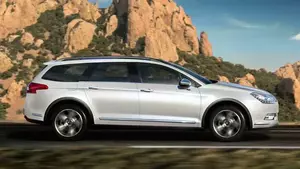
| Vehicle | Precise engine size | Difference from world average | Engine size to consumption ratio | Horsepower from 1 L | Engine size to 100 kg of weight |
|---|---|---|---|---|---|
| 2.0 BlueHDi |
2 L (1997 cc) |
14.9% smaller | 38 cc to 1 mpg | 90 hp from 1 L | 117 cc to 100 kg |
| 2.0 HDi |
2 L (1997 cc) |
14.9% smaller | 43 cc to 1 mpg | 82 hp from 1 L | 111 cc to 100 kg |
| 2.2 HDi |
2.18 L (2179 cc) |
7.1% smaller | 56 cc to 1 mpg | 94 hp from 1 L | 115 cc to 100 kg |
| Vehicle | 2.0 BlueHDi |
|---|---|
| Precise engine size | 2 L (1997 cc) |
| Difference from world average | 14.9 smaller |
| Engine size to consumption ratio | 38 cc to 1 mpg |
| Horsepower from 1 L | 90 hp from 1 L |
| Engine size to 100 kg of weight | 117 cc to 100 kg |
| Vehicle | 2.0 HDi |
| Precise engine size | 2 L (1997 cc) |
| Difference from world average | 14.9 smaller |
| Engine size to consumption ratio | 43 cc to 1 mpg |
| Horsepower from 1 L | 82 hp from 1 L |
| Engine size to 100 kg of weight | 111 cc to 100 kg |
| Vehicle | 2.2 HDi |
| Precise engine size | 2.18 L (2179 cc) |
| Difference from world average | 7.1 smaller |
| Engine size to consumption ratio | 56 cc to 1 mpg |
| Horsepower from 1 L | 94 hp from 1 L |
| Engine size to 100 kg of weight | 115 cc to 100 kg |
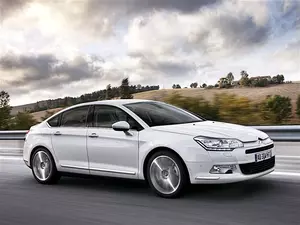
| Vehicle | Precise engine size | Difference from world average | Engine size to consumption ratio | Horsepower from 1 L | Engine size to 100 kg of weight |
|---|---|---|---|---|---|
| 1.6 THP |
1.6 L (1598 cc) |
31.9% smaller | 46 cc to 1 mpg | 98 hp from 1 L | 107 cc to 100 kg |
| 1.6 e-HDi |
1.56 L (1560 cc) |
33.5% smaller | 30 cc to 1 mpg | 73 hp from 1 L | 104 cc to 100 kg |
| 2.0 HDi |
2 L (1997 cc) |
14.9% smaller | 49 cc to 1 mpg | 70 hp from 1 L | 125 cc to 100 kg |
| 1.6 VTi |
1.6 L (1598 cc) |
31.9% smaller | 42 cc to 1 mpg | 75 hp from 1 L | 114 cc to 100 kg |
| 2.2 HDi |
2.18 L (2179 cc) |
7.1% smaller | 54 cc to 1 mpg | 94 hp from 1 L | 128 cc to 100 kg |
| 2.0 BlueHDi |
2 L (1997 cc) |
14.9% smaller | 38 cc to 1 mpg | 90 hp from 1 L | 125 cc to 100 kg |
| 1.6 HDi |
1.56 L (1560 cc) |
33.5% smaller | 33 cc to 1 mpg | 73 hp from 1 L | 104 cc to 100 kg |
| Vehicle | 1.6 THP |
|---|---|
| Precise engine size | 1.6 L (1598 cc) |
| Difference from world average | 31.9 smaller |
| Engine size to consumption ratio | 46 cc to 1 mpg |
| Horsepower from 1 L | 98 hp from 1 L |
| Engine size to 100 kg of weight | 107 cc to 100 kg |
| Vehicle | 1.6 e-HDi |
| Precise engine size | 1.56 L (1560 cc) |
| Difference from world average | 33.5 smaller |
| Engine size to consumption ratio | 30 cc to 1 mpg |
| Horsepower from 1 L | 73 hp from 1 L |
| Engine size to 100 kg of weight | 104 cc to 100 kg |
| Vehicle | 2.0 HDi |
| Precise engine size | 2 L (1997 cc) |
| Difference from world average | 14.9 smaller |
| Engine size to consumption ratio | 49 cc to 1 mpg |
| Horsepower from 1 L | 70 hp from 1 L |
| Engine size to 100 kg of weight | 125 cc to 100 kg |
| Vehicle | 1.6 VTi |
| Precise engine size | 1.6 L (1598 cc) |
| Difference from world average | 31.9 smaller |
| Engine size to consumption ratio | 42 cc to 1 mpg |
| Horsepower from 1 L | 75 hp from 1 L |
| Engine size to 100 kg of weight | 114 cc to 100 kg |
| Vehicle | 2.2 HDi |
| Precise engine size | 2.18 L (2179 cc) |
| Difference from world average | 7.1 smaller |
| Engine size to consumption ratio | 54 cc to 1 mpg |
| Horsepower from 1 L | 94 hp from 1 L |
| Engine size to 100 kg of weight | 128 cc to 100 kg |
| Vehicle | 2.0 BlueHDi |
| Precise engine size | 2 L (1997 cc) |
| Difference from world average | 14.9 smaller |
| Engine size to consumption ratio | 38 cc to 1 mpg |
| Horsepower from 1 L | 90 hp from 1 L |
| Engine size to 100 kg of weight | 125 cc to 100 kg |
| Vehicle | 1.6 HDi |
| Precise engine size | 1.56 L (1560 cc) |
| Difference from world average | 33.5 smaller |
| Engine size to consumption ratio | 33 cc to 1 mpg |
| Horsepower from 1 L | 73 hp from 1 L |
| Engine size to 100 kg of weight | 104 cc to 100 kg |
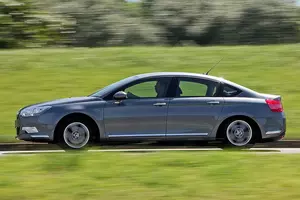
| Vehicle | Precise engine size | Difference from world average | Engine size to consumption ratio | Horsepower from 1 L | Engine size to 100 kg of weight |
|---|---|---|---|---|---|
| 1.6 THP |
1.6 L (1598 cc) |
31.9% smaller | 48 cc to 1 mpg | 98 hp from 1 L | 107 cc to 100 kg |
| 1.6 e-HDi |
1.56 L (1560 cc) |
33.5% smaller | 31 cc to 1 mpg | 71 hp from 1 L | 104 cc to 100 kg |
| 1.8 16V |
1.75 L (1749 cc) |
25.4% smaller | 58 cc to 1 mpg | 71 hp from 1 L | 117 cc to 100 kg |
| 2.0 HDi |
2 L (1997 cc) |
14.9% smaller | 57 cc to 1 mpg | 82 hp from 1 L | 125 cc to 100 kg |
| 2.0 16V |
2 L (1997 cc) |
14.9% smaller | 77 cc to 1 mpg | 70 hp from 1 L | 125 cc to 100 kg |
| 2.2 HDi Biturbo |
2.18 L (2179 cc) |
7.1% smaller | 61 cc to 1 mpg | 78 hp from 1 L | 128 cc to 100 kg |
| 1.6 HDi |
1.56 L (1560 cc) |
33.5% smaller | 35 cc to 1 mpg | 71 hp from 1 L | 104 cc to 100 kg |
| 3.0 V6 24V |
2.95 L (2946 cc) |
25.6% bigger | 134 cc to 1 mpg | 72 hp from 1 L | 173 cc to 100 kg |
| 2.7 HDi Biturbo V6 |
2.72 L (2720 cc) |
15.9% bigger | 97 cc to 1 mpg | 75 hp from 1 L | 151 cc to 100 kg |
| 1.6 VTi |
1.6 L (1598 cc) |
31.9% smaller | 42 cc to 1 mpg | 75 hp from 1 L | 114 cc to 100 kg |
| 3.0 HDi Biturbo V6 |
2.99 L (2993 cc) |
27.6% bigger | 94 cc to 1 mpg | 81 hp from 1 L | 166 cc to 100 kg |
| Vehicle | 1.6 THP |
|---|---|
| Precise engine size | 1.6 L (1598 cc) |
| Difference from world average | 31.9 smaller |
| Engine size to consumption ratio | 48 cc to 1 mpg |
| Horsepower from 1 L | 98 hp from 1 L |
| Engine size to 100 kg of weight | 107 cc to 100 kg |
| Vehicle | 1.6 e-HDi |
| Precise engine size | 1.56 L (1560 cc) |
| Difference from world average | 33.5 smaller |
| Engine size to consumption ratio | 31 cc to 1 mpg |
| Horsepower from 1 L | 71 hp from 1 L |
| Engine size to 100 kg of weight | 104 cc to 100 kg |
| Vehicle | 1.8 16V |
| Precise engine size | 1.75 L (1749 cc) |
| Difference from world average | 25.4 smaller |
| Engine size to consumption ratio | 58 cc to 1 mpg |
| Horsepower from 1 L | 71 hp from 1 L |
| Engine size to 100 kg of weight | 117 cc to 100 kg |
| Vehicle | 2.0 HDi |
| Precise engine size | 2 L (1997 cc) |
| Difference from world average | 14.9 smaller |
| Engine size to consumption ratio | 57 cc to 1 mpg |
| Horsepower from 1 L | 82 hp from 1 L |
| Engine size to 100 kg of weight | 125 cc to 100 kg |
| Vehicle | 2.0 16V |
| Precise engine size | 2 L (1997 cc) |
| Difference from world average | 14.9 smaller |
| Engine size to consumption ratio | 77 cc to 1 mpg |
| Horsepower from 1 L | 70 hp from 1 L |
| Engine size to 100 kg of weight | 125 cc to 100 kg |
| Vehicle | 2.2 HDi Biturbo |
| Precise engine size | 2.18 L (2179 cc) |
| Difference from world average | 7.1 smaller |
| Engine size to consumption ratio | 61 cc to 1 mpg |
| Horsepower from 1 L | 78 hp from 1 L |
| Engine size to 100 kg of weight | 128 cc to 100 kg |
| Vehicle | 1.6 HDi |
| Precise engine size | 1.56 L (1560 cc) |
| Difference from world average | 33.5 smaller |
| Engine size to consumption ratio | 35 cc to 1 mpg |
| Horsepower from 1 L | 71 hp from 1 L |
| Engine size to 100 kg of weight | 104 cc to 100 kg |
| Vehicle | 3.0 V6 24V |
| Precise engine size | 2.95 L (2946 cc) |
| Difference from world average | 25.6 bigger |
| Engine size to consumption ratio | 134 cc to 1 mpg |
| Horsepower from 1 L | 72 hp from 1 L |
| Engine size to 100 kg of weight | 173 cc to 100 kg |
| Vehicle | 2.7 HDi Biturbo V6 |
| Precise engine size | 2.72 L (2720 cc) |
| Difference from world average | 15.9 bigger |
| Engine size to consumption ratio | 97 cc to 1 mpg |
| Horsepower from 1 L | 75 hp from 1 L |
| Engine size to 100 kg of weight | 151 cc to 100 kg |
| Vehicle | 1.6 VTi |
| Precise engine size | 1.6 L (1598 cc) |
| Difference from world average | 31.9 smaller |
| Engine size to consumption ratio | 42 cc to 1 mpg |
| Horsepower from 1 L | 75 hp from 1 L |
| Engine size to 100 kg of weight | 114 cc to 100 kg |
| Vehicle | 3.0 HDi Biturbo V6 |
| Precise engine size | 2.99 L (2993 cc) |
| Difference from world average | 27.6 bigger |
| Engine size to consumption ratio | 94 cc to 1 mpg |
| Horsepower from 1 L | 81 hp from 1 L |
| Engine size to 100 kg of weight | 166 cc to 100 kg |
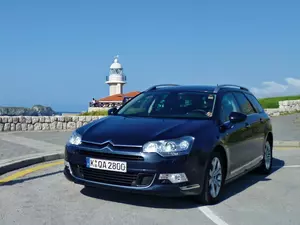
| Vehicle | Precise engine size | Difference from world average | Engine size to consumption ratio | Horsepower from 1 L | Engine size to 100 kg of weight |
|---|---|---|---|---|---|
| 1.6 e-HDi |
1.56 L (1560 cc) |
33.5% smaller | 31 cc to 1 mpg | 71 hp from 1 L | 104 cc to 100 kg |
| 1.6 HDi |
1.56 L (1560 cc) |
33.5% smaller | 38 cc to 1 mpg | 70 hp from 1 L | 104 cc to 100 kg |
| 2.0 16V |
2 L (1997 cc) |
14.9% smaller | 77 cc to 1 mpg | 70 hp from 1 L | 125 cc to 100 kg |
| 3.0 HDi Biturbo V6 |
2.99 L (2993 cc) |
27.6% bigger | 94 cc to 1 mpg | 81 hp from 1 L | 166 cc to 100 kg |
| 1.8 16V |
1.75 L (1749 cc) |
25.4% smaller | 60 cc to 1 mpg | 71 hp from 1 L | 117 cc to 100 kg |
| 2.0 HDi |
2 L (1997 cc) |
14.9% smaller | 61 cc to 1 mpg | 68 hp from 1 L | 117 cc to 100 kg |
| 1.6 VTi |
1.6 L (1598 cc) |
31.9% smaller | 43 cc to 1 mpg | 75 hp from 1 L | 107 cc to 100 kg |
| 1.6 THP |
1.6 L (1598 cc) |
31.9% smaller | 48 cc to 1 mpg | 98 hp from 1 L | 107 cc to 100 kg |
| 2.2 HDi |
2.18 L (2179 cc) |
7.1% smaller | 56 cc to 1 mpg | 94 hp from 1 L | 121 cc to 100 kg |
| 3.0 V6 24V |
2.95 L (2946 cc) |
25.6% bigger | 134 cc to 1 mpg | 72 hp from 1 L | 164 cc to 100 kg |
| 2.2 HDi Biturbo |
2.18 L (2179 cc) |
7.1% smaller | 61 cc to 1 mpg | 78 hp from 1 L | 121 cc to 100 kg |
| 2.7 HDi Biturbo V6 |
2.72 L (2720 cc) |
15.9% bigger | 97 cc to 1 mpg | 75 hp from 1 L | 151 cc to 100 kg |
| Vehicle | 1.6 e-HDi |
|---|---|
| Precise engine size | 1.56 L (1560 cc) |
| Difference from world average | 33.5 smaller |
| Engine size to consumption ratio | 31 cc to 1 mpg |
| Horsepower from 1 L | 71 hp from 1 L |
| Engine size to 100 kg of weight | 104 cc to 100 kg |
| Vehicle | 1.6 HDi |
| Precise engine size | 1.56 L (1560 cc) |
| Difference from world average | 33.5 smaller |
| Engine size to consumption ratio | 38 cc to 1 mpg |
| Horsepower from 1 L | 70 hp from 1 L |
| Engine size to 100 kg of weight | 104 cc to 100 kg |
| Vehicle | 2.0 16V |
| Precise engine size | 2 L (1997 cc) |
| Difference from world average | 14.9 smaller |
| Engine size to consumption ratio | 77 cc to 1 mpg |
| Horsepower from 1 L | 70 hp from 1 L |
| Engine size to 100 kg of weight | 125 cc to 100 kg |
| Vehicle | 3.0 HDi Biturbo V6 |
| Precise engine size | 2.99 L (2993 cc) |
| Difference from world average | 27.6 bigger |
| Engine size to consumption ratio | 94 cc to 1 mpg |
| Horsepower from 1 L | 81 hp from 1 L |
| Engine size to 100 kg of weight | 166 cc to 100 kg |
| Vehicle | 1.8 16V |
| Precise engine size | 1.75 L (1749 cc) |
| Difference from world average | 25.4 smaller |
| Engine size to consumption ratio | 60 cc to 1 mpg |
| Horsepower from 1 L | 71 hp from 1 L |
| Engine size to 100 kg of weight | 117 cc to 100 kg |
| Vehicle | 2.0 HDi |
| Precise engine size | 2 L (1997 cc) |
| Difference from world average | 14.9 smaller |
| Engine size to consumption ratio | 61 cc to 1 mpg |
| Horsepower from 1 L | 68 hp from 1 L |
| Engine size to 100 kg of weight | 117 cc to 100 kg |
| Vehicle | 1.6 VTi |
| Precise engine size | 1.6 L (1598 cc) |
| Difference from world average | 31.9 smaller |
| Engine size to consumption ratio | 43 cc to 1 mpg |
| Horsepower from 1 L | 75 hp from 1 L |
| Engine size to 100 kg of weight | 107 cc to 100 kg |
| Vehicle | 1.6 THP |
| Precise engine size | 1.6 L (1598 cc) |
| Difference from world average | 31.9 smaller |
| Engine size to consumption ratio | 48 cc to 1 mpg |
| Horsepower from 1 L | 98 hp from 1 L |
| Engine size to 100 kg of weight | 107 cc to 100 kg |
| Vehicle | 2.2 HDi |
| Precise engine size | 2.18 L (2179 cc) |
| Difference from world average | 7.1 smaller |
| Engine size to consumption ratio | 56 cc to 1 mpg |
| Horsepower from 1 L | 94 hp from 1 L |
| Engine size to 100 kg of weight | 121 cc to 100 kg |
| Vehicle | 3.0 V6 24V |
| Precise engine size | 2.95 L (2946 cc) |
| Difference from world average | 25.6 bigger |
| Engine size to consumption ratio | 134 cc to 1 mpg |
| Horsepower from 1 L | 72 hp from 1 L |
| Engine size to 100 kg of weight | 164 cc to 100 kg |
| Vehicle | 2.2 HDi Biturbo |
| Precise engine size | 2.18 L (2179 cc) |
| Difference from world average | 7.1 smaller |
| Engine size to consumption ratio | 61 cc to 1 mpg |
| Horsepower from 1 L | 78 hp from 1 L |
| Engine size to 100 kg of weight | 121 cc to 100 kg |
| Vehicle | 2.7 HDi Biturbo V6 |
| Precise engine size | 2.72 L (2720 cc) |
| Difference from world average | 15.9 bigger |
| Engine size to consumption ratio | 97 cc to 1 mpg |
| Horsepower from 1 L | 75 hp from 1 L |
| Engine size to 100 kg of weight | 151 cc to 100 kg |
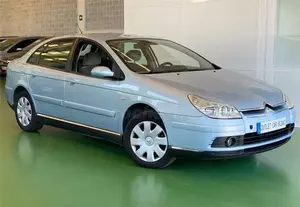
| Vehicle | Precise engine size | Difference from world average | Engine size to consumption ratio | Horsepower from 1 L | Engine size to 100 kg of weight |
|---|---|---|---|---|---|
| 2.0i 16V |
2 L (1997 cc) |
14.9% smaller | 69 cc to 1 mpg | 70 hp from 1 L | 143 cc to 100 kg |
| 2.2 HDi |
2.18 L (2179 cc) |
7.1% smaller | 66 cc to 1 mpg | 61 hp from 1 L | 136 cc to 100 kg |
| 1.8i 16V |
1.75 L (1749 cc) |
25.4% smaller | 56 cc to 1 mpg | 71 hp from 1 L | 125 cc to 100 kg |
| 2.2 HDi Biturbo |
2.18 L (2179 cc) |
7.1% smaller | 56 cc to 1 mpg | 78 hp from 1 L | 136 cc to 100 kg |
| 2.0 HDi |
2 L (1997 cc) |
14.9% smaller | 51 cc to 1 mpg | 68 hp from 1 L | 133 cc to 100 kg |
| 1.6i HDi |
1.56 L (1560 cc) |
33.5% smaller | 35 cc to 1 mpg | 70 hp from 1 L | 111 cc to 100 kg |
| 3.0i V6 24V |
2.95 L (2946 cc) |
25.6% bigger | 123 cc to 1 mpg | 70 hp from 1 L | 184 cc to 100 kg |
| Vehicle | 2.0i 16V |
|---|---|
| Precise engine size | 2 L (1997 cc) |
| Difference from world average | 14.9 smaller |
| Engine size to consumption ratio | 69 cc to 1 mpg |
| Horsepower from 1 L | 70 hp from 1 L |
| Engine size to 100 kg of weight | 143 cc to 100 kg |
| Vehicle | 2.2 HDi |
| Precise engine size | 2.18 L (2179 cc) |
| Difference from world average | 7.1 smaller |
| Engine size to consumption ratio | 66 cc to 1 mpg |
| Horsepower from 1 L | 61 hp from 1 L |
| Engine size to 100 kg of weight | 136 cc to 100 kg |
| Vehicle | 1.8i 16V |
| Precise engine size | 1.75 L (1749 cc) |
| Difference from world average | 25.4 smaller |
| Engine size to consumption ratio | 56 cc to 1 mpg |
| Horsepower from 1 L | 71 hp from 1 L |
| Engine size to 100 kg of weight | 125 cc to 100 kg |
| Vehicle | 2.2 HDi Biturbo |
| Precise engine size | 2.18 L (2179 cc) |
| Difference from world average | 7.1 smaller |
| Engine size to consumption ratio | 56 cc to 1 mpg |
| Horsepower from 1 L | 78 hp from 1 L |
| Engine size to 100 kg of weight | 136 cc to 100 kg |
| Vehicle | 2.0 HDi |
| Precise engine size | 2 L (1997 cc) |
| Difference from world average | 14.9 smaller |
| Engine size to consumption ratio | 51 cc to 1 mpg |
| Horsepower from 1 L | 68 hp from 1 L |
| Engine size to 100 kg of weight | 133 cc to 100 kg |
| Vehicle | 1.6i HDi |
| Precise engine size | 1.56 L (1560 cc) |
| Difference from world average | 33.5 smaller |
| Engine size to consumption ratio | 35 cc to 1 mpg |
| Horsepower from 1 L | 70 hp from 1 L |
| Engine size to 100 kg of weight | 111 cc to 100 kg |
| Vehicle | 3.0i V6 24V |
| Precise engine size | 2.95 L (2946 cc) |
| Difference from world average | 25.6 bigger |
| Engine size to consumption ratio | 123 cc to 1 mpg |
| Horsepower from 1 L | 70 hp from 1 L |
| Engine size to 100 kg of weight | 184 cc to 100 kg |

| Vehicle | Precise engine size | Difference from world average | Engine size to consumption ratio | Horsepower from 1 L | Engine size to 100 kg of weight |
|---|---|---|---|---|---|
| 2.0i 16V |
2 L (1997 cc) |
14.9% smaller | 69 cc to 1 mpg | 70 hp from 1 L | 143 cc to 100 kg |
| 1.8i 16V |
1.75 L (1749 cc) |
25.4% smaller | 56 cc to 1 mpg | 66 hp from 1 L | 125 cc to 100 kg |
| 2.2 HDi |
2.18 L (2179 cc) |
7.1% smaller | 66 cc to 1 mpg | 61 hp from 1 L | 136 cc to 100 kg |
| 3.0i V6 24V Carlsson |
2.95 L (2946 cc) |
25.6% bigger | 134 cc to 1 mpg | 80 hp from 1 L | 184 cc to 100 kg |
| 1.6 HDi |
1.56 L (1560 cc) |
33.5% smaller | 36 cc to 1 mpg | 70 hp from 1 L | 111 cc to 100 kg |
| 2.0 HDi |
2 L (1997 cc) |
14.9% smaller | 51 cc to 1 mpg | 68 hp from 1 L | 133 cc to 100 kg |
| 2.2 HDi Biturbo |
2.18 L (2179 cc) |
7.1% smaller | 57 cc to 1 mpg | 78 hp from 1 L | 136 cc to 100 kg |
| 1.6 HDI |
1.56 L (1560 cc) |
33.5% smaller | 36 cc to 1 mpg | 70 hp from 1 L | 111 cc to 100 kg |
| 1.8 16V |
1.75 L (1749 cc) |
25.4% smaller | 56 cc to 1 mpg | 71 hp from 1 L | 125 cc to 100 kg |
| 3.0i V6 24V |
2.95 L (2946 cc) |
25.6% bigger | 123 cc to 1 mpg | 70 hp from 1 L | 184 cc to 100 kg |
| Vehicle | 2.0i 16V |
|---|---|
| Precise engine size | 2 L (1997 cc) |
| Difference from world average | 14.9 smaller |
| Engine size to consumption ratio | 69 cc to 1 mpg |
| Horsepower from 1 L | 70 hp from 1 L |
| Engine size to 100 kg of weight | 143 cc to 100 kg |
| Vehicle | 1.8i 16V |
| Precise engine size | 1.75 L (1749 cc) |
| Difference from world average | 25.4 smaller |
| Engine size to consumption ratio | 56 cc to 1 mpg |
| Horsepower from 1 L | 66 hp from 1 L |
| Engine size to 100 kg of weight | 125 cc to 100 kg |
| Vehicle | 2.2 HDi |
| Precise engine size | 2.18 L (2179 cc) |
| Difference from world average | 7.1 smaller |
| Engine size to consumption ratio | 66 cc to 1 mpg |
| Horsepower from 1 L | 61 hp from 1 L |
| Engine size to 100 kg of weight | 136 cc to 100 kg |
| Vehicle | 3.0i V6 24V Carlsson |
| Precise engine size | 2.95 L (2946 cc) |
| Difference from world average | 25.6 bigger |
| Engine size to consumption ratio | 134 cc to 1 mpg |
| Horsepower from 1 L | 80 hp from 1 L |
| Engine size to 100 kg of weight | 184 cc to 100 kg |
| Vehicle | 1.6 HDi |
| Precise engine size | 1.56 L (1560 cc) |
| Difference from world average | 33.5 smaller |
| Engine size to consumption ratio | 36 cc to 1 mpg |
| Horsepower from 1 L | 70 hp from 1 L |
| Engine size to 100 kg of weight | 111 cc to 100 kg |
| Vehicle | 2.0 HDi |
| Precise engine size | 2 L (1997 cc) |
| Difference from world average | 14.9 smaller |
| Engine size to consumption ratio | 51 cc to 1 mpg |
| Horsepower from 1 L | 68 hp from 1 L |
| Engine size to 100 kg of weight | 133 cc to 100 kg |
| Vehicle | 2.2 HDi Biturbo |
| Precise engine size | 2.18 L (2179 cc) |
| Difference from world average | 7.1 smaller |
| Engine size to consumption ratio | 57 cc to 1 mpg |
| Horsepower from 1 L | 78 hp from 1 L |
| Engine size to 100 kg of weight | 136 cc to 100 kg |
| Vehicle | 1.6 HDI |
| Precise engine size | 1.56 L (1560 cc) |
| Difference from world average | 33.5 smaller |
| Engine size to consumption ratio | 36 cc to 1 mpg |
| Horsepower from 1 L | 70 hp from 1 L |
| Engine size to 100 kg of weight | 111 cc to 100 kg |
| Vehicle | 1.8 16V |
| Precise engine size | 1.75 L (1749 cc) |
| Difference from world average | 25.4 smaller |
| Engine size to consumption ratio | 56 cc to 1 mpg |
| Horsepower from 1 L | 71 hp from 1 L |
| Engine size to 100 kg of weight | 125 cc to 100 kg |
| Vehicle | 3.0i V6 24V |
| Precise engine size | 2.95 L (2946 cc) |
| Difference from world average | 25.6 bigger |
| Engine size to consumption ratio | 123 cc to 1 mpg |
| Horsepower from 1 L | 70 hp from 1 L |
| Engine size to 100 kg of weight | 184 cc to 100 kg |
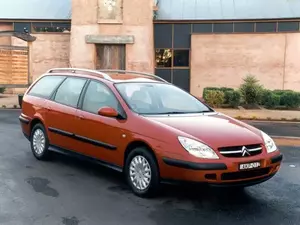
| Vehicle | Precise engine size | Difference from world average | Engine size to consumption ratio | Horsepower from 1 L | Engine size to 100 kg of weight |
|---|---|---|---|---|---|
| 3.0i V6 |
2.95 L (2946 cc) |
25.6% bigger | 123 cc to 1 mpg | 70 hp from 1 L | 196 cc to 100 kg |
| 2.2 HDi |
2.18 L (2179 cc) |
7.1% smaller | 59 cc to 1 mpg | 62 hp from 1 L | 145 cc to 100 kg |
| 2.0 HDi |
2 L (1997 cc) |
14.9% smaller | 51 cc to 1 mpg | 55 hp from 1 L | 133 cc to 100 kg |
| 2.0i 16V |
2 L (1997 cc) |
14.9% smaller | 71 cc to 1 mpg | 68 hp from 1 L | 143 cc to 100 kg |
| 2.0i HPi |
2 L (1998 cc) |
14.8% smaller | 71 cc to 1 mpg | 70 hp from 1 L | 143 cc to 100 kg |
| 1.8i 16V |
1.75 L (1749 cc) |
25.4% smaller | 58 cc to 1 mpg | 66 hp from 1 L | 125 cc to 100 kg |
| 3.0i V6 24V Carlsson |
2.95 L (2946 cc) |
25.6% bigger | - | 80 hp from 1 L | 184 cc to 100 kg |
| Vehicle | 3.0i V6 |
|---|---|
| Precise engine size | 2.95 L (2946 cc) |
| Difference from world average | 25.6 bigger |
| Engine size to consumption ratio | 123 cc to 1 mpg |
| Horsepower from 1 L | 70 hp from 1 L |
| Engine size to 100 kg of weight | 196 cc to 100 kg |
| Vehicle | 2.2 HDi |
| Precise engine size | 2.18 L (2179 cc) |
| Difference from world average | 7.1 smaller |
| Engine size to consumption ratio | 59 cc to 1 mpg |
| Horsepower from 1 L | 62 hp from 1 L |
| Engine size to 100 kg of weight | 145 cc to 100 kg |
| Vehicle | 2.0 HDi |
| Precise engine size | 2 L (1997 cc) |
| Difference from world average | 14.9 smaller |
| Engine size to consumption ratio | 51 cc to 1 mpg |
| Horsepower from 1 L | 55 hp from 1 L |
| Engine size to 100 kg of weight | 133 cc to 100 kg |
| Vehicle | 2.0i 16V |
| Precise engine size | 2 L (1997 cc) |
| Difference from world average | 14.9 smaller |
| Engine size to consumption ratio | 71 cc to 1 mpg |
| Horsepower from 1 L | 68 hp from 1 L |
| Engine size to 100 kg of weight | 143 cc to 100 kg |
| Vehicle | 2.0i HPi |
| Precise engine size | 2 L (1998 cc) |
| Difference from world average | 14.8 smaller |
| Engine size to consumption ratio | 71 cc to 1 mpg |
| Horsepower from 1 L | 70 hp from 1 L |
| Engine size to 100 kg of weight | 143 cc to 100 kg |
| Vehicle | 1.8i 16V |
| Precise engine size | 1.75 L (1749 cc) |
| Difference from world average | 25.4 smaller |
| Engine size to consumption ratio | 58 cc to 1 mpg |
| Horsepower from 1 L | 66 hp from 1 L |
| Engine size to 100 kg of weight | 125 cc to 100 kg |
| Vehicle | 3.0i V6 24V Carlsson |
| Precise engine size | 2.95 L (2946 cc) |
| Difference from world average | 25.6 bigger |
| Engine size to consumption ratio | - |
| Horsepower from 1 L | 80 hp from 1 L |
| Engine size to 100 kg of weight | 184 cc to 100 kg |
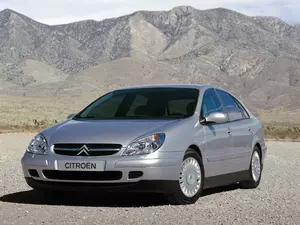
| Vehicle | Precise engine size | Difference from world average | Engine size to consumption ratio | Horsepower from 1 L | Engine size to 100 kg of weight |
|---|---|---|---|---|---|
| 2.0 HDi |
2 L (1996 cc) |
14.9% smaller | 48 cc to 1 mpg | 55 hp from 1 L | 143 cc to 100 kg |
| 3.0i V6 |
2.95 L (2946 cc) |
25.6% bigger | 123 cc to 1 mpg | 70 hp from 1 L | 196 cc to 100 kg |
| 2.2 HDi |
2.18 L (2179 cc) |
7.1% smaller | 59 cc to 1 mpg | 62 hp from 1 L | 145 cc to 100 kg |
| 2.0i 16V |
2 L (1997 cc) |
14.9% smaller | 71 cc to 1 mpg | 68 hp from 1 L | 154 cc to 100 kg |
| 1.8i 16V |
1.75 L (1749 cc) |
25.4% smaller | 56 cc to 1 mpg | 66 hp from 1 L | 135 cc to 100 kg |
| 2.0 HPi |
2 L (1997 cc) |
14.9% smaller | 64 cc to 1 mpg | 70 hp from 1 L | 154 cc to 100 kg |
| Vehicle | 2.0 HDi |
|---|---|
| Precise engine size | 2 L (1996 cc) |
| Difference from world average | 14.9 smaller |
| Engine size to consumption ratio | 48 cc to 1 mpg |
| Horsepower from 1 L | 55 hp from 1 L |
| Engine size to 100 kg of weight | 143 cc to 100 kg |
| Vehicle | 3.0i V6 |
| Precise engine size | 2.95 L (2946 cc) |
| Difference from world average | 25.6 bigger |
| Engine size to consumption ratio | 123 cc to 1 mpg |
| Horsepower from 1 L | 70 hp from 1 L |
| Engine size to 100 kg of weight | 196 cc to 100 kg |
| Vehicle | 2.2 HDi |
| Precise engine size | 2.18 L (2179 cc) |
| Difference from world average | 7.1 smaller |
| Engine size to consumption ratio | 59 cc to 1 mpg |
| Horsepower from 1 L | 62 hp from 1 L |
| Engine size to 100 kg of weight | 145 cc to 100 kg |
| Vehicle | 2.0i 16V |
| Precise engine size | 2 L (1997 cc) |
| Difference from world average | 14.9 smaller |
| Engine size to consumption ratio | 71 cc to 1 mpg |
| Horsepower from 1 L | 68 hp from 1 L |
| Engine size to 100 kg of weight | 154 cc to 100 kg |
| Vehicle | 1.8i 16V |
| Precise engine size | 1.75 L (1749 cc) |
| Difference from world average | 25.4 smaller |
| Engine size to consumption ratio | 56 cc to 1 mpg |
| Horsepower from 1 L | 66 hp from 1 L |
| Engine size to 100 kg of weight | 135 cc to 100 kg |
| Vehicle | 2.0 HPi |
| Precise engine size | 2 L (1997 cc) |
| Difference from world average | 14.9 smaller |
| Engine size to consumption ratio | 64 cc to 1 mpg |
| Horsepower from 1 L | 70 hp from 1 L |
| Engine size to 100 kg of weight | 154 cc to 100 kg |